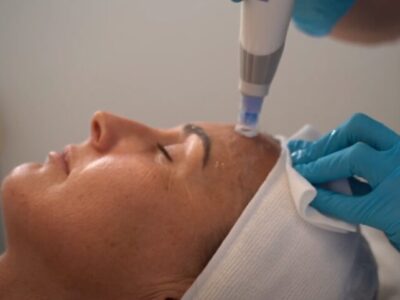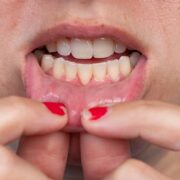
The word impotence is often used to define problems which affect the ability to have sex or it may be simply a loss of sexual desire and ability to achieve or sustain an erection during sexual intercourse. However, impotence is much more specific to men or inability to attain or sustain an erection or to have an orgasm. This may include erectile dysfunctions related to the spine, neck, legs, arms, upper back, lower back, pelvis, hips, thighs or testicles. Impotence is not the same as erectile dysfunction, which is a condition whereby the male ejaculates during sexual intercourse.
Impotence may be caused by physical causes like spinal cord injuries, neurological conditions, kidney problems, high blood pressure, diabetes, Parkinson’s disease, liver disease or multiple sclerosis. The physical examination reveals whether there are any physical abnormalities. The doctor should be able to find out if there is something that can cause impotence in the future. Impotence may be associated with emotional problems like anxiety or depression. Psychological problems like these need to be treated separately because they may intensify or worsen the symptoms of impotence. The emotional problems also need to be examined along with the physical ones.
Impotence treatments such as those performed by clinics like premiermensmedical.com depend on a doctor’s diagnosis of the underlying cause of impotence. Medications may be prescribed for treating erectile problems. However, many patients choose alternative methods of treating impotence. There are herbal and holistic medicines that can treat the physical and emotional problems that lead to impotence. These medicines improve the functioning of the endocrine system and boost up the immunity system.
Certain lifestyle and nutritional changes can also help to reduce or eliminate the causes of impotence. Men who drink too much alcohol tend to suffer from psychological and physical stresses which lead to impotence. Men who are overweight, eat a high protein diet and who do not get enough exercises tend to be more likely to suffer from impotence than men who eat a low protein diet and get sufficient exercises. Smoking, lack of sleep, and unhealthy habits and eating habits are also known to be major causes of impotence in men.
A healthy diet, regular exercise, less alcohol use and regular psychological counseling can help to cure impotence. In some cases, surgery might be needed to remove or correct physical abnormalities which cause impotence. Surgery may also be required if alcoholism is causing hormonal imbalance.
Most of the people who develop impotence do not have any physical problem. In such situations, it is important to consult a doctor who will be able to help you in assessing your health issues and recommend the most suitable treatment. Sometimes, treating the physical problem may not address the root cause of the problem. Therefore, it is very important to look at all possible treatments for this condition, whether they involve medicinal treatments or natural therapies.
Impotence or erectile dysfunction (ED) refers to the inability to get an erection adequate to have sexual intercourse. It can also indicate that your erections do not last long or are weak or even not present at all. In the older days, erectile dysfunctions were thought to be caused primarily by psychological issues. However it is now known that for many men erectile dysfunction is caused by underlying physical factors.
Impotence is a serious medical condition and can lead to all kinds of complications if left untreated. The treatment for impotence includes lifestyle changes as well as psychological causes. Impotence is usually caused by a physical problem like a lack of testosterone or other hormonal elements in the body. This can be corrected through hormonal supplements such as testosterone injections or through a number of herbal remedies like balm, ginkgo biloba, and other herbs that improve circulation and stimulate sexual desire and function. However if these hormonal treatments do not work, you may be suffering from more serious conditions like diabetes, which can lead to permanent impotence.
There are many psychological causes of impotence. One of these is stress. Some men may take their job very seriously and feel the pressure of their jobs; however this may lead them to procrastinate, which further decreases their performance in bed. Some cases of impotence are caused by the weakness of the erectile tissue due to age, poor blood circulation in the brain, neurological disorders, and diseases like diabetes.
One of the psychological causes of impotence is performance anxiety. This is also caused by a physical problem like a weak erection or premature ejaculation. Performance anxiety causes men to feel their performance is inferior to that of their sexual partners. A simple solution to this is to talk to your partner about your performance anxiety, but if you cannot do so then there are several ways to overcome this kind of anxiety.
Impotence can also be caused by several psychological risk factors. For example older men have higher risks of impotence because they have lower blood flow in the brain than younger men. It has been proven that the older a man is, the smaller the chances of him getting erections. Men with psychological impotence are more prone to low levels of testosterone in their body. The lack of testosterone in the body makes older men more susceptible to diseases and illnesses such as cardiovascular disease, depression, and arthritis.
Impotence is more common among men with diabetes than any other group. The presence of high blood pressure in an older person is also a factor for impotence. Older men who have kidney problems, liver problems, or high cholesterol levels are more likely to get impotence. In order to prevent impotence from occurring, older men should visit their doctors regularly. They should keep a check on their blood pressure and cholesterol levels and try to control their weight if they have high blood pressure and high cholesterol levels.











